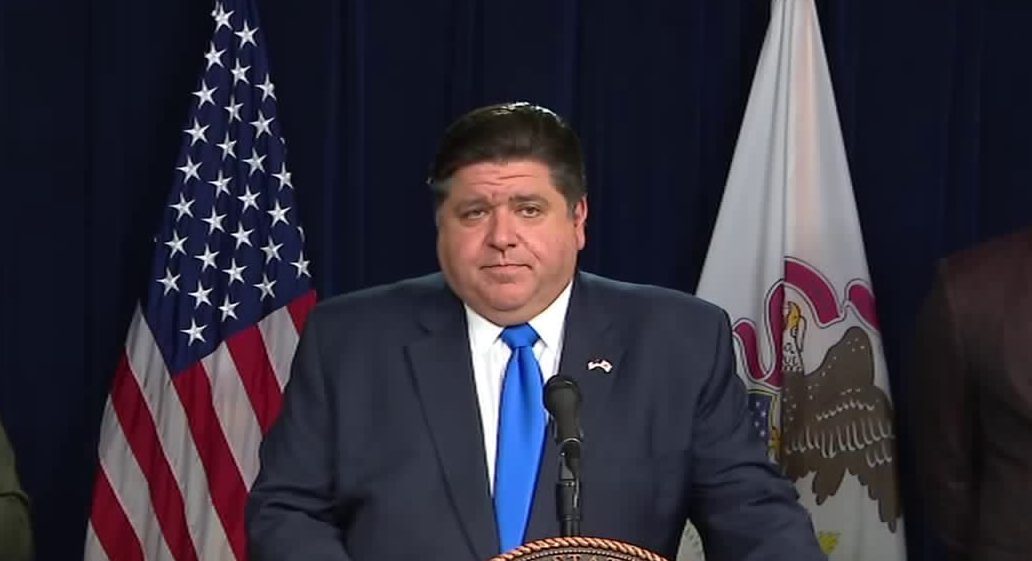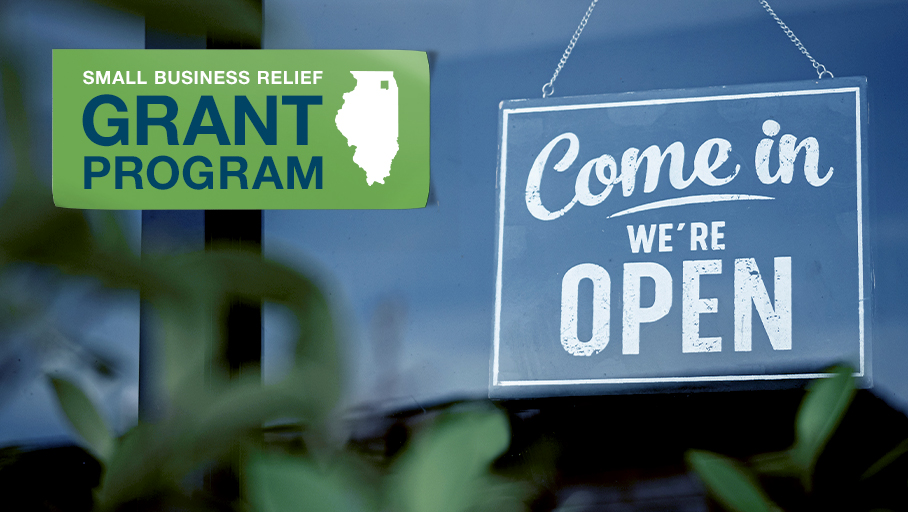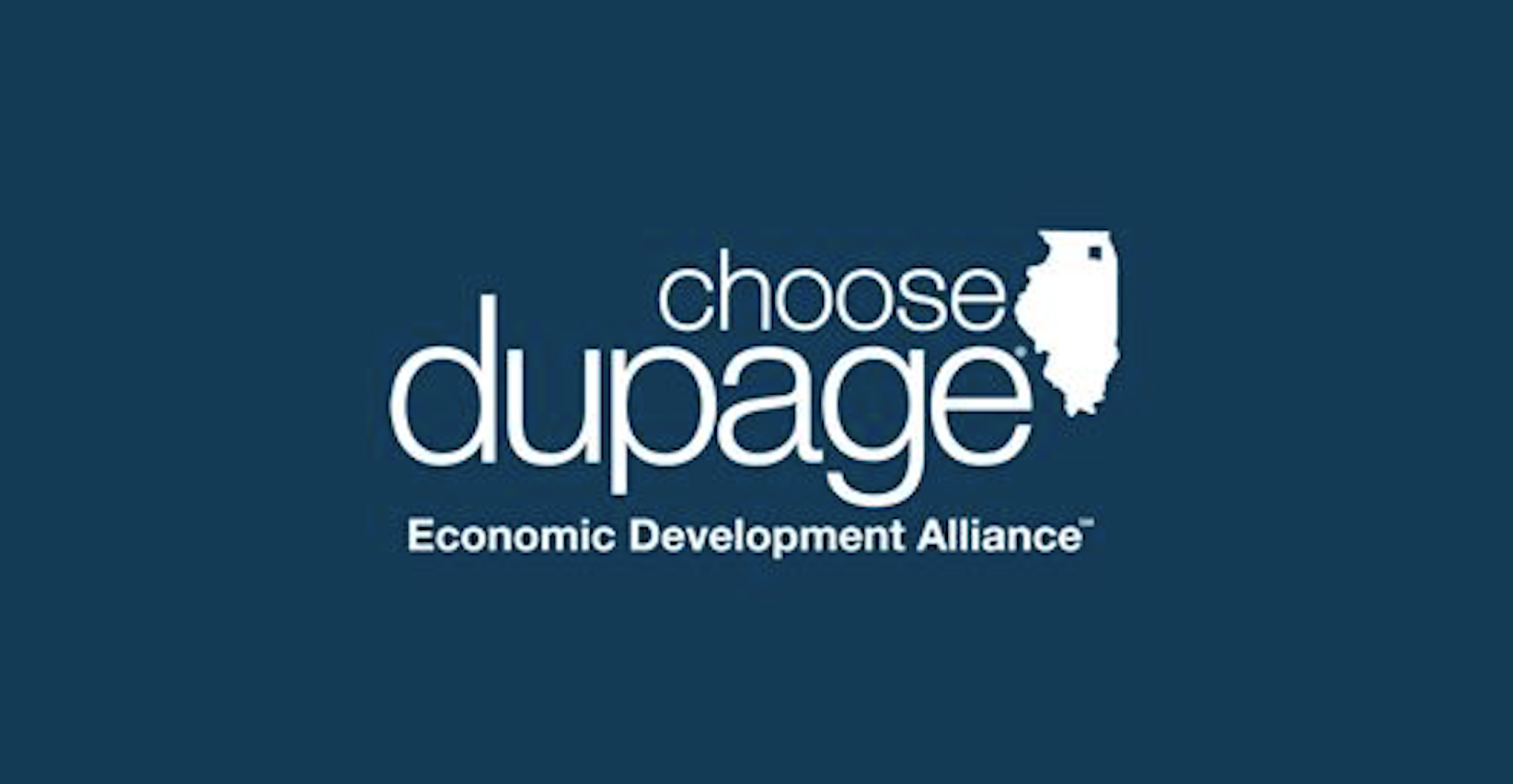Springfield – Governor JB Pritzker [May 24, 2020] released industry-specific guidelines that allow for the safe re-opening of businesses as the state progresses into the next phase of the Restore Illinois plan. All four regions of the state are on track to advance to Phase 3 of the plan in the coming days, allowing thousands of residents to return to work, and the reopening of businesses in the following industries: retail, offices, manufacturing, barbershops and salons, summer programs, various outdoor recreation activities and bars and restaurants for outdoor dining.
Guidelines as well as toolkits for businesses can be found on the Illinois Department of Commerce and Economic Opportunity (DCEO) website, HERE.
“In every aspect of our pandemic response, and especially as we begin to safely reopen meaningful swaths of our economy, our number one priority must be the health and safety of our workers, our customers, and Illinoisans at large,” said Governor JB Pritzker. “The industry-specific baseline guidance for businesses the Department of Commerce and Economic Opportunity released today will help employers re-open their doors in Phase 3 in line with that priority. In order to cover as many unique aspects of industry as possible, my administration collected input from hundreds of industry participants across the state and these guidelines reflect the questions and ideas brought to us by businesses of every size, background, and region in the state – and prioritize public health as our guiding light. You can’t build a strong economy if people aren’t comfortable being a part of it.”
Phase 3 of Restore Illinois is expected to bring approximately 700,000 Illinoisans back to the workplace, a key step towards getting the Illinois economy back on track—with an estimated 20 percent, or $150 billion in annual GDP, of the overall economy returned to operations.
In addition to industry-specific guidelines, DCEO and the Illinois Department of Public Health (IDPH) developed a common set of standards all businesses must follow. Those standards include the required use of face coverings, social distancing, and informational signage on site, among other preventative measures.
DCEO also developed a downloadable toolkit for businesses to help them re-open and comply with new guidelines. The toolkit includes signage, training checklists and other resources to help business owners and workers implement safety procedures and precautions from IDPH. Materials will soon be made available in multiple languages, including Spanish, Polish, Chinese and other most commonly spoken languages in Illinois.
The Pritzker administration has launched nearly $100 million in resources in the past few weeks to help businesses impacted by COVID-19 – including the Downstate Small Business Stabilization Program, the Small Business Emergency Loan Fund, the Emergency Hospitality Assistance Grant, and the Fast Track Capital Grants. The administration continues to look for ways to provide ongoing assistance for businesses across the state. A full list of resources made available to small businesses and communities can be found on DCEO’s website.
“The move to phase 3 marks a milestone achievement in our efforts to protect all Illinois communities and overcome the COVID-19 pandemic,” said Dr. Ngozi Ezike, Director of IDPH. “IDPH will continue working closely with local public health departments, businesses and communities across our state to refine our public health response based on the latest data, expand testing and contact tracing, and sustain our overall progress in overcoming COVID-19.”
DCEO consulted extensively with over 200 businesses, industry leaders, chambers of commerce, industry associations and trade representatives from around the state to consider the unique aspects and operations of each business industry that is preparing to re-open.
In addition to the return to work and reopening of specific businesses, Phase 3 permits the following: small group gatherings of 10 or fewer; participation in select sports and outdoor activities, including tennis, boating and camping; and other activities where safe social distancing can be practiced. Residents must continue to follow public health guidelines around social distancing, sanitization and face coverings.
“New guidance provided by the State today will help ensure a safe reopening for businesses, customers and communities at large,” said Michael Negron, Assistant Director of DCEO. “As Illinois works toward its recovery, DCEO is committed to providing businesses across our state clear and actionable guidance that will allow them to implement safe operations so they can get back on track.”
Restore Illinois is a five-phase plan focused on saving lives, livelihood, and safely reopening Illinois. The phased approach is guided by health metrics and coupled with investments in hospital capacity, ramping up testing, and establishing a comprehensive contact tracing system to ensure communities continue to make progress in bending the curve of COVID-19. This initial plan can and will be updated as research and science develop and as the potential for effective treatments or vaccines is realized. All guidelines for phases are informed by public health data, a review of other states, and CDC guidelines.
“All manufacturing in Illinois will be able to operate under these guidelines as Illinois moves to the next phase of Restore Illinois. This is a milestone for the manufacturing sector that employs 592,000 women and men on factory floors, many of whom were already working on the front lines making life-saving equipment, producing food, or equipping first responders,” said Mark Denzler, President & CEO of the Illinois Manufacturers’ Association. “We appreciate the Governor’s Administration for engaging with the IMA and manufacturers across the state in this process and accepting some of our recommendations. Manufacturers look forward to releasing their collective economic might to help our economy recover.”
“The outdoor operational guidelines provided by Governor Pritzker and his team prioritize health and safety while allowing our state’s eating and drinking establishments to start bringing their team members back to work,” said Sam Toia, President and CEO, Illinois Restaurant Association. “We are pleased to see Phase 3 outdoor guidelines extend to a range of food and beverage service providers, and while we recognize this is not a solution for every business, we are encouraged by the creative plans in progress by local municipalities to implement measures that will help broaden the opportunities. This is one step forward in getting our restaurants and bars open in a safe, measured way while allowing diners to come back to the places and experiences they’ve missed.”
“While all of us are focused on maintaining the health, safety and welfare of our residents, we are equally focused on returning to an active, meaningful economy and positive, interpersonal social interactions,” said Brad Cole, Executive Director of the Illinois Municipal League.
“On behalf of the businesses in Coles County, I appreciate the effort the Pritzker administration made to consider and solicit guidance from regional businesses as the state moves into Phase 3 of the Restore Illinois plan,” said Angela Griffin, President of Coles County Together. “Listening to leaders across sectors and across the state assures the nuances of operating a business in the central region are given adequate consideration in ways that both protect our citizens’ health and preserve their livelihood.”
“Thanks to the Illinois Department of Economic Opportunity for hosting the Focus Group on Covid-19 and the impacts on business operations,” said Kevin Davis, Vice President of Pepsi MidAmerica. “We have maintained a very clean and safe environment as an essential employer throughout this entire process, so the check-list we went through was of value to confirm all of our responses and determine all of the areas to be considered.”
“The Great River Economic Development Foundation and several key Quincy and Adams County businesses were very appreciative of the opportunity to meet with representatives of DCEO to discuss our regional challenges, the status of our businesses and to work on strategies within the guidelines of the ReStore Illinois plan,” said Marcel Wagner, Executive Director, Great River Economic Development Foundation. “Quincy and Adams County have been working on a toolkit for businesses to use which aligned very well with the information in presented yesterday by DCEO. All of our participating businesses felt that our information was well received and be a part of the Phase 3 planning.”
“As we start to reopen our businesses and workplaces, having guidelines and best practices will be beneficial to our employers and staff. Thank you for taking time to hear local input into the process,” said Alene Carr, Executive Director of Southeastern Regional Planning.
“The Springfield Sangamon Growth Alliance appreciates Illinois DCEO allowing us and our area businesses to provide feedback and suggestions for these important guidelines,” said Ryan McCrady, CEO of Springfield Sangamon Growth Alliance, Springfield Illinois. “Gaining input from those businesses affected by the guidelines will certainly improve the compliance and practicality of the provisions.”
“The Quad Cities Chamber continues to advocate for a timely, safe and responsible reopening of the Quad Cities economy. I appreciate Governor Pritzker’s willingness to allow us to review and provide input on Illinois’ draft guidelines in advance of their release,” said Paul Rumler, CEO of Quad Cities Chamber. “As impacted Illinois businesses look forward to the Phase 3 reopening, the Chamber asks the state to provide clear guidelines to companies for robust, yet manageable, health protections. Doing so helps balance businesses reopening in a safe manner while also protecting the health of their employees and customers they serve.”
“The pandemic has brought Illinois’ tourism and hospitality industry to its knees and that has translated to more than half of the employees in the sector becoming unemployed,” said John Groh, President/CEO of Rockford Area Convention & Visitors Bureau. “Reopening our state’s economy safely, responsibility and sustainably is critical. So, I was very pleased to have bene invited to represent our local industry partners in reviewing and providing feedback on Phase 3 re-opening guidelines.”
“On behalf of the many health and fitness centers that operate as business units within Illinois Park Districts and Recreation Departments, we appreciate the thoughtful considerations made by the Department of Commerce and Economic Opportunity and the Illinois Department of Public Health in regard to Phase 3 opening procedures,” said Ron Oestreich, Execitove Director of Bolingbrook Park District. “Our members’ health and wellness will be the ultimate beneficiary of these considerations.”
“Thank you for inviting me to participate in a very important subject for the region, keeping employees safe while operating a manufacturing business. I believe we are in this together and need to all do our part in staying safe. Being part of an essential business has allowed us to experience and develop our processes to help create the guidelines for a safer future,” said Erik Perks, Plant Manager of General Cable. “Greater Peoria EDC was happy to help DCEO put a focus group of local businesses together, and was appreciative of being allowed to provide feedback around some the guidelines.”
“We would like to thank the Governor’s Office and the DCEO for putting together the task force and listening to our concerns as local and small business owners. The open discussion was refreshing and informative,” said Stephanie Clark, Chief Executive Officer and Rebecca Garland, Chief Compliance Officer, of VeriFacts, LLC, Sterling Illinois.
“I appreciated hearing the input of the other participants and plans for reopening,” said Angela Rowe, Owner of Decorating Den & Saline County Chamber.
“We would like to thank Governor JB Pritzker and DCEO for reaching out to the Greater Sterling Development Corporation to provide regional coordination of local business input into the guidelines being released for phase 3 of Restore Illinois. When government agencies listen to business concerns, everyone benefits,” said Heather Sotelo, Executive Director of Greater Sterling Development Corporation. “Our hope is by participating in these conversations, we will keep our businesses open and provide a safe environment for our citizens to work, shop and eat thus moving more quickly to the next phase.”
“I appreciate the opportunity given to me from DCEO and Governor JB Pritzker inviting me to participate in panel discussions regarding the re-opening of Illinois, and given a chance to voice my opinions and concerns on the guidelines pertaining to retail establishments like mine,” said John Brady, Owner of JJM Printing, Sterling Illinois.
“I appreciate the chance to engage in the dialogue regarding the proposed reopening guidelines,” said Bart Hagston, Administrator, Jackson County Health Department. “Forward progress depends upon having solid, carefully considered guidelines.”
“The Leadership Council SWIL supports DCEO efforts to reopen business in our region! We also appreciate guidelines that will inform the process of reopening given the current COVID-19 virus still existing in our communities. Reopening of our economy and putting people back to work balanced with a proactive and aggressive testing, tracking, and containment of virus hotspot areas will require all of us to lookout for each other by wearing masks and social distancing for the foreseeable future. This virus has brought out the best in many of us to do the right thing for the health of our friends, neighbors, and communities in a consistent and sustained manner,” said Ronda Sauget, CEO of Southwestern Leadership Council, Metro East. “Many businesses have worked hard to develop strong plans to follow the guidelines as appropriate for their business and for their customers. We salute all of the frontline and essential workers who have been working diligently setting a strong example for all of us to follow as we look forward to reopening more businesses. Please stay safe and we look forward to better times ahead!”
“The Professional Beauty Association is very appreciative of the opportunity to work together with the state of Illinois in a collaborative effort to implement safe guidelines for the reopening process of salons,” said Myra Y. Irizarry Reddy, Director, Government Affairs of Professional Beauty Association. “PBA applauds the administration for their careful approach to ensure the safety of licensed beauty professionals and their clients.”




